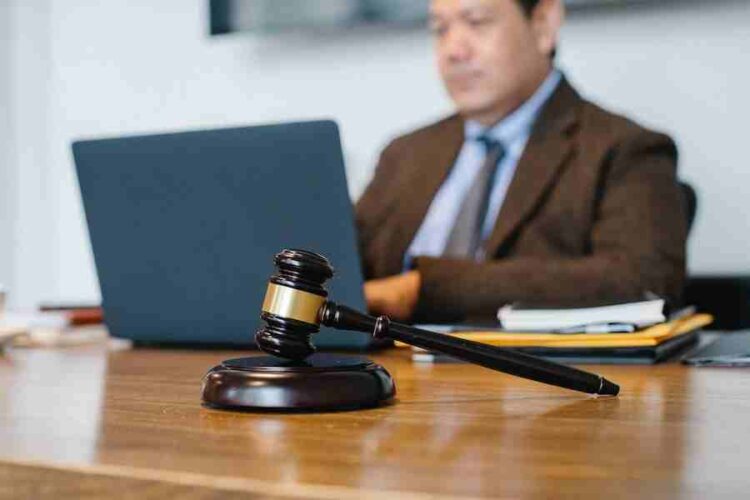In the realm of legal decision-making, two crucial mechanisms often come into play: guardianship and power of attorney. Guardianship is a legal arrangement where a court appoints a guardian to make decisions for an individual who is unable to make them independently. On the other hand, power of attorney is a legal document that grants authority to an agent, known as an attorney-in-fact, to act on behalf of another person in specific matters. However, a question arises: Does guardianship override power of attorney? This article aims to explore the relationship between guardianship and power of attorney, shed light on their respective roles, and examine circumstances in which guardianship may take precedence over power of attorney. By delving into these concepts, we can gain a better understanding of the intricate dynamics between these legal mechanisms.
Does Guardianship Override Power Of Attorney?
Yes, in certain circumstances, guardianship can override power of attorney. Guardianship is typically established by a court and grants decision-making authority to a guardian for an individual who is incapacitated. This can supersede the powers granted through a power of attorney, especially if the court determines that the individual is unable to make informed decisions or the power of attorney is being misused or not in the individual’s best interests.
How Guardianship Is Established?
Guardianship is established through a legal process that involves court intervention. The specific steps may vary depending on the jurisdiction, but generally, the process involves the following:
- Petition: A person interested in becoming a guardian, such as a family member or concerned party, files a petition with the appropriate court. The petition outlines the reasons for seeking guardianship and provides details about the individual who may need a guardian.
- Evaluation: The court may order an evaluation or investigation to assess the individual’s capacity and determine if guardianship is necessary. This evaluation may involve medical, psychological, or social assessments.
- Notice: Notice of the guardianship proceedings must be given to the individual for whom guardianship is being sought, as well as interested parties, such as close family members or potential alternate guardians. This ensures that all relevant parties have the opportunity to participate and present their perspectives.
- Hearing: A court hearing is scheduled where the petitioner presents their case, and interested parties can provide input or contest the guardianship. The court considers the evidence and arguments presented before making a decision.
- Appointment: If the court determines that guardianship is necessary and in the best interests of the individual, a guardian is appointed. The court may consider factors such as the guardian’s qualifications, relationship to the individual, and ability to carry out the responsibilities of guardianship.
- Ongoing Oversight: Once appointed, the guardian is subject to the court’s ongoing oversight. The guardian may be required to submit regular reports to the court, seek court approval for certain decisions, or seek permission for major actions, such as the sale of property belonging to the individual.
It’s important to note that the process for establishing guardianship can vary by jurisdiction, and it is recommended to consult local laws and seek legal advice for specific guidance in a particular area.
Types Of Power Of Attorney
There are several types of power of attorney, each serving different purposes and granting varying degrees of decision-making authority. The common types of power of attorney include:
- General Power of Attorney: This type grants broad powers to the agent (attorney-in-fact) to make financial, legal, and business decisions on behalf of the principal. It is usually effective immediately upon signing and remains in effect until revoked or the principal becomes incapacitated.
- Durable Power of Attorney: A durable power of attorney remains in effect even if the principal becomes incapacitated. It grants the agent the authority to make decisions and act on behalf of the principal in financial and legal matters. It provides continuity of decision-making in case the principal loses capacity.
- Limited Power of Attorney: This type of power of attorney grants the agent limited powers and authority to act on behalf of the principal in specific, predefined matters. It is often used for specific transactions or time-limited situations where the principal is unable or unavailable to handle certain affairs.
- Healthcare Power of Attorney: Also known as medical power of attorney or healthcare proxy, this type grants the agent the authority to make healthcare decisions on behalf of the principal if they are unable to do so. It often includes decisions related to medical treatments, end-of-life care, and consent for medical procedures.
- Springing Power of Attorney: A springing power of attorney becomes effective only when a specific triggering event occurs, typically the incapacity of the principal. This type ensures that the agent’s powers are activated only when needed and determined by a specific condition outlined in the power of attorney document.
It’s important to note that the availability and specific requirements of each type of power of attorney may vary based on jurisdiction. Consulting with an attorney or legal professional is advisable to understand the specific laws and requirements related to powers of attorney in a particular jurisdiction.
Resolving Conflicts Between Guardianship And Power Of Attorney
Resolving conflicts between guardianship and power of attorney can be complex, as both legal mechanisms involve decision-making authority for an individual. Here are some approaches that can help navigate such conflicts:
When conflicts arise, it is often beneficial to engage in mediation or negotiation. This involves bringing all relevant parties together, including the Guardian, the agent with power of attorney, and potentially the individual in question, along with legal professionals or mediators. The goal is to discuss the conflicting decisions, understand each party’s perspectives, and seek a mutually agreeable resolution that serves the best interests of the individual. Mediation can help facilitate open communication, compromise, and finding common ground to address the conflict.
Given the complexities involved in conflicts between guardianship and power of attorney, it is advisable to consult with legal professionals experienced in elder law or guardianship matters. An attorney can review the specific circumstances, applicable laws, and the documents governing guardianship and power of attorney. They can provide guidance on the best course of action, advocate for their client’s interests, and help navigate any legal proceedings that may be required to resolve the conflict. Legal advice can ensure that decisions are made within the boundaries of the law and protect the rights and well-being of the individual in question.
Conclusion
In conclusion, understanding the relationship between guardianship and power of attorney is crucial when it comes to decision-making for individuals who are unable to make choices independently. While the power of attorney grants decision-making authority to an agent, guardianship, established through a court process, can override power of attorney in certain circumstances. This typically occurs when the court determines that the individual is incapacitated or if the power of attorney is being misused. Resolving conflicts between guardianship and power of attorney requires approaches such as mediation, negotiation, and seeking legal advice. By striking a balance between the interests of the individual and the appointed representatives, we can ensure that decisions are made in their best interests and their well-being is protected.
FAQ’s
Can Guardianship And Power Of Attorney Coexist?
Yes, guardianship and power of attorney can coexist. However, the decision-making authority of the guardian may supersede that of the agent with power of attorney, particularly if the court determines that guardianship is necessary for the individual’s best interests.
Can A Power Of Attorney Override A Guardianship?
Generally, a power of attorney cannot override a guardianship established by a court. Guardianship is a legal appointment made by the court, whereas power of attorney is a document granting authority. However, there may be circumstances where a court may modify or terminate a guardianship if it deems that the power of attorney adequately addresses the individual’s needs.
Can A Person Have Multiple Guardians?
It is possible for a person to have multiple guardians, especially if different individuals are responsible for specific aspects of the individual’s well-being or if co-guardianship is appointed by the court. This can help distribute decision-making responsibilities and ensure a balanced approach to the individual’s care.
Can A Power Of Attorney Be Challenged?
Yes, a power of attorney can be challenged in certain situations. If there are concerns of abuse, fraud, coercion, or incompetence on the part of the agent, interested parties can file a legal challenge to the power of attorney. The court will review the evidence and make a determination based on the best interests of the principal.
Can A Power Of Attorney Be Revoked?
Yes, a power of attorney can be revoked by the principal at any time, as long as they have the legal capacity to do so. Revocation can be done by executing a revocation document or by creating a new power of attorney that expressly revokes the previous one. It is important to follow the legal requirements for revocation as per the applicable jurisdiction.










